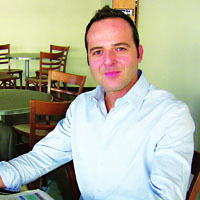
It’s normal to have feelings of altruism. Choosing to be of service to others for the greater good is a personal desire many of us have and exercise. This can also be very rewarding, with the potential to greatly increase purpose and meaning in our own lives. Some community organisations spring up from an obvious unmet need. Normally a small group of individuals will coalesce around a particular idea that is important to them. In a perfect world this group would work and grow harmoniously together until the need was met or the idea materialised.
However the experience of many budding community organisations is that they are besieged by internal conflict. Individual members may differ in direction and solutions to problems. Too frequently ownership, ego, and personality clashes can derail the direction of the group. Factions can form and become sticky on principles not relevant to the original purpose. Mash the preceding scenario with differences on how conflict is resolved and you have a formula for the loss of focus, talent and the zapping of community energy.
What do we expect from our community organisations? How fair is it to expect our community organisations to be professional and perfect all of the time? Given that all organisations are made up people, could we really expect each other to be on top of our game 100% of the time? Do we have this expectation of ourselves? What kind of pressure do we place on ourselves and our community organisations when anything less than perfect is labelled unacceptable, inappropriate or inadequate? Organisations may introduce policies, procedures and systems to account for and mitigate against the variability’s of human personality and behaviour, but is any system capable of perfect performance? What if we are the ones impacted by the consequences of poor organisation and service? What is our place is this dynamic?
Constructive change does not often come from silence or from throwing one’s hands in the air. Our place could be to assert how we have been wronged and to explain how the behaviour of the organisation has led to unintended consequences. Community organisations must also play their part constructively such as owning and acknowledging their mistakes and genuine attempts to rectify the situation, so that future occurrences do not occur or are minimised. When we manage our own expectations and keep focused on our shared, purpose, values and goals, then we begin to really strengthen our communities and build on the constructive energy we receive and give back to each other.
Cipri Martinez






